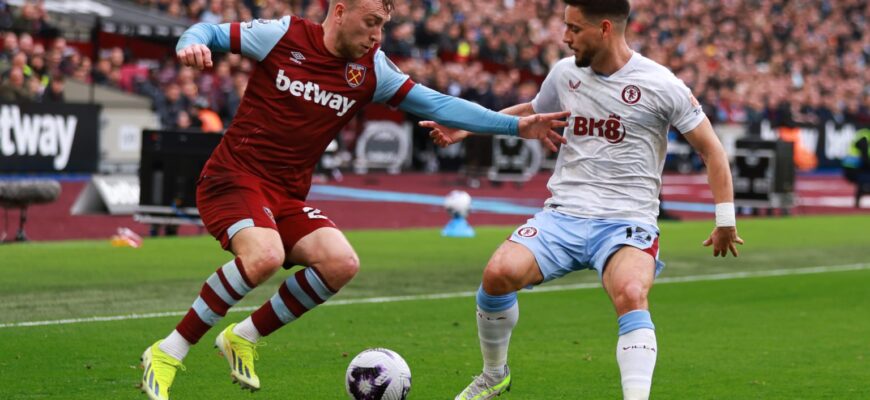The English Premier League is a relentless arena, a place where fortunes can turn in a single match, and a club`s trajectory often hinges on the sagacity of its leadership. For West Ham United, the recent shift in the dugout, seeing Nuno Espirito Santo replace Graham Potter, was intended as a catalyst for change. Yet, as former Hammer Dean Ashton soberly observes, merely swapping one figurehead for another rarely resolves deeply entrenched structural deficiencies. The alarm bells, it seems, continue to ring loudly over the London Stadium`s future in the top flight.
The Elusive `New Manager Bounce`
In the high-stakes world of professional football, the `new manager bounce` is a phenomenon often invoked with almost mystical reverence. A fresh face, a new voice, a revamped training regime – these are the ingredients believed to inject immediate vigour into a flagging squad. Nuno Espirito Santo`s arrival at West Ham followed this familiar script. His initial outing, a hard-fought draw away at Everton, offered a fleeting glimpse of defensive solidity. However, the subsequent 2-0 defeat to Arsenal starkly exposed the chasm between intent and execution. As Ashton pointed out, West Ham “gave them nothing, absolutely nothing” in attack, save for a fleeting moment early on. This isn`t merely a tactical hiccup; it hints at a more profound issue.
The immediate impact of a new manager is often fleeting if the underlying foundation is unstable. A coach can tweak formations and deliver rousing team talks, but they cannot conjure dynamism where it`s absent, nor can they magically manifest depth in a shallow squad. The romantic notion that a change in leadership alone will solve all ills is a fallacy often indulged by clubs in crisis, sometimes with temporary reprieve, but rarely with lasting salvation.
Recruitment: The Undoing of Ambition?
Dean Ashton`s most piercing critique revolves around West Ham`s summer recruitment strategy, or rather, the perceived lack thereof. “Recruitment was poor in the summer and has left them short,” he stated unequivocally. This isn`t just a former player grumbling; it`s a technical assessment. A football squad is a complex ecosystem, requiring a delicate balance of skills, experience, and specific attributes for various roles. When key areas are neglected, or new additions fail to integrate effectively, the entire structure becomes vulnerable.
The phrase “lack dynamism” used by Ashton is particularly telling. In modern football, dynamism translates to pace, energy, quick decision-making, and the ability to transition rapidly between defense and attack. A team devoid of such qualities risks becoming predictable, easily stifled by opposition, and ultimately, unable to impose itself on matches. While young talents like Magassa from Monaco might offer future promise, the immediate need for battle-hardened, impactful players seems to have gone unaddressed, leaving Nuno with a challenging puzzle to solve with limited pieces.
The Burden of Individual Brilliance
When collective performance falters, the spotlight inevitably swings to individual heroes. For West Ham, much of their offensive hope rests squarely on the shoulders of Jarrod Bowen. Ashton rightly acknowledges that Bowen “will have to produce week in, week out” for the team to stand a chance. This reliance on one or two star performers is a common symptom of a squad lacking overall quality. While Bowen`s talent is undeniable, the Premier League demands more than sporadic brilliance from a single player. It requires a cohesive unit where every component contributes to the overall strength.
This immense pressure on key players can be a double-edged sword. While it can elevate their game temporarily, sustained reliance risks burnout, injury, or a dip in form that a less balanced squad is ill-equipped to absorb. For West Ham, ensuring Bowen remains fit, firing, and creatively influential will be paramount, but it`s a precarious strategy to hinge survival on a solitary figure.
The Slog Ahead
The calendar offers no respite. Nuno Espirito Santo`s first home game after the international break, against Brentford, followed by a crucial trip to Leeds United, will set the tone for the challenging period ahead. These are not merely fixtures; they are direct confrontations in the battle for Premier League survival. As Ashton bluntly put it, “It`s going to be a slog. It`s going to be a real slog.”
The path forward for West Ham is clear, if arduous. It necessitates more than just tactical adjustments from the new manager. It requires a collective resurgence, an unwavering commitment from every player, and perhaps, a frank re-evaluation of how the squad was assembled. Dean Ashton`s concerns are not merely those of a former player; they are a pragmatic assessment of a club facing a genuine challenge, one that extends far beyond the identity of the man in the dugout. The Premier League waits for no one, and for West Ham, the time for decisive action, both on and off the pitch, is now.









